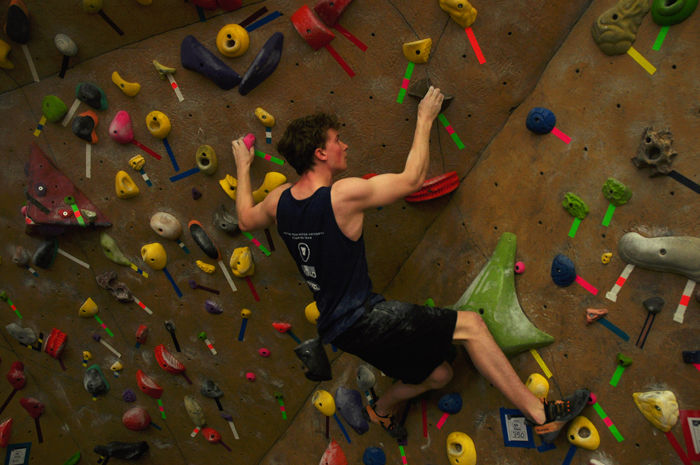Climbing outside of your major
April 6, 2016
At the beginning of our education at WSU, amid the various Alive! sessions and academic counseling appointments, I remember the panicked atmosphere of deciding on a major.
Some people didn’t know at all, some people weren’t completely sure, but going home for Thanksgiving, the constantly reoccurring question at the dinner table was “so, what’s your major?”
Once you have declared a major, the next four years are likely to be a barrage of major-related classes, papers, projects and more counseling appointments. We often worry about our futures, sometimes going online to check the median national salary rate for our major, or read Forbes’ “Top 15 Majors,” hoping that our major is on that list.
As important as majors may be, today’s reality is, according to workers from the Federal Reserve Bank of New York, only around 27% of college graduates will have a job directly related to their college major.
This may sound disappointing, but it is also a wakeup call telling us it is time to take college seriously, and do more than simply take the required major-related classes. While a degree is what most people consider the most valuable part of coming to college, an important part of our education here is broadening our horizons and creating new opportunities for ourselves in the future.
Extracurricular activities, clubs and general activities unrelated to one’s major create a more versatile applicant or worker in general. There are over 300 student-led organizations on campus and nearly every intramural sport imaginable as well.
The opportunities for trying something new here at WSU are endless, and the result in the long run is well worth the results.
I talked to Anna Budke, a member of the WSU Climbing Club, concerning involvement in non-major related activities and how they can impact our lives on a daily basis.
“People don’t realize that climbing is a mental sport. You need to be able to look at a problem and think strategically about how you want to approach it without getting caught up about where you want to go, and do it efficiently so that you don’t get tired halfway up,” Budke said.
Strategizing, planning ahead and working efficiently are all valuable skills to learn as a future employee and “climbing in general is really a way to test yourself mentally and physically,” Budke added.
Doing something new is always a challenge, and immersing oneself in a new environment is something one will have to do constantly later in life (if not already), so it is a great idea to prepare oneself for that. Participating in challenging activities accomplishes just that. As Budke stated, “whether you’ve never climbed before, or have been climbing for 20 years, there’s always going to be a good challenge for your level.”
Becoming part of a community and finding one’s niche is often difficult, and participating in extracurricular activities and sports is definitely a way to expand one’s social circle.
In short, there are so many opportunities for us to build our resume and acquire new skills for the future, so let’s take advantage of them while we’re here and build our careers in the process.



















